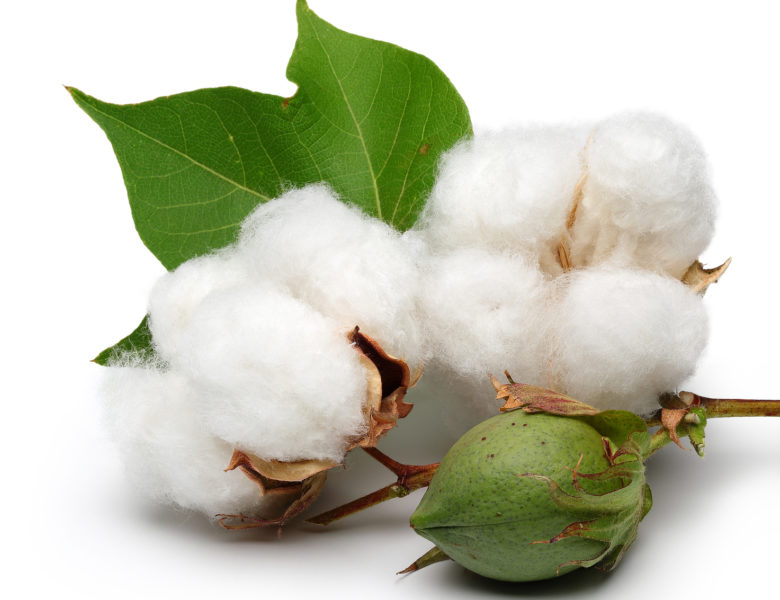|
|||||||||||||||||||||||||||||||||||||||||||||||||
|
|||||||||||||||||||||||||||||||||||||||||||||||||
**MARKET OUTLOOK**
India & International Market Highlights: • Cotton prices have firmed up over the past few days after unexpected rains in the key growing regions of Maharashtra, Gujarat, Madhya Pradesh and Telangana and other States delayed the harvest of the fibre crop. • The man-made fibres and yarns were slotted under 18 percent GST rate while the fabrics were slotted under 5 per GST slab with a condition of no refund ITC at fabric stage. This had created a huge accumulation of nonrefundable ITC with the weavers and blockage of working capital. North Zone:
Cotton traded steady tone across major spot markets of north India on Friday. Prices were down Rs 05-10 per maund. In Punjab, ready delivery new crop cotton traded at Rs 3,840-3,850 a maund. In Haryana, it offered at Rs 3,890-3,900 while in Rajasthan, ready delivery quoted at Rs 3,830-3,850 a maund. Central Zone:
Cotton spot prices steady tone across west India market on Friday. Gujarat Sankar-6, A-Grade old crop (29 mm, 3.8 mic) cotton traded at Rs 39500-40000 per candy. while new crop cotton traded flat at Rs 38000-39000 per candy. V 797 cotton offered at Rs 27000-28000 a candy. While in Maharashtra, mech-1 running quality new crop quoted at Rs 39000-40000 a candy. South Zone: Cotton spot price was steady tone across the major trading centers of south India.
US Cotton Futures : Cotton futures finished the day with losses of 78 to 93 points. The USDA cut the US cotton yield 19 pounds to 889 pounds per acre. That lowered production 0.64 million bales to 21.12 million bales, as expected exports also fell to 14.5 million bales. Projected US ending stocks were trimmed 200,000 to 5.8 million bales. World ending stocks were lowered just 0.16 to 92.38 million bales. The Cotlook A index for October 11 was again UNCH from the previous day at 78.80 cents/lb. The Export Sales report will be delayed until Friday morning due to the Monday federal holiday. All upland cotton prevent plant acres were reported at 115,472 acres as of October, slightly ahead of last year. Dec 17 Cotton closed at 67.840, down 89 points, Mar 18 Cotton closed at 67.370, down 93 points Jul 18 Cotton closed at 68.680, down 80 points.
Spinners keep up the momentum on cotton market: October 12, 2017 – KARACHI: Brisk activity was witnessed on the cotton market on Wednesday as spinners remained engaged in buying spree. Much of the activity remained around quality cotton which seems to be in short supply. Spinners happily paid quality premium in order to get hold of lots of their choice which pushed prices higher by Rs50-100 per bale on ready trading. Though cotton production is being estimated at around 13 million bales, much higher than last year’s production of about 10 million bales, but quality issues are forcing spinners to stock their inventories. Former chairman Pakistan Cotton Ginners Association (PCGA) Jehtaalad Kohistani told Dawn that recent monsoon rains had affected the quality of cotton in Dadu district of Sindh. The current heat wave is also not good for standing cotton plants in Punjab and Sindh, added. He hoped the country would still achieve the production target of 13m bales. The quality issue, however, could impact prices as spinners throughout the season would prefer to pay premium price in order to get cotton of their choice, Mr Kohistani added. Smooth phutti arrivals have ensured that ginners remain fully occupied in its processing. Punjab variety phutti is being quoted higher in the range of Rs3,100-3,200 and Sindh quality between Rs2,900-3,000 per 40kg. The world leading cotton market also closed steady with New York cotton gave erratic behavior. The Karachi Cotton Association (KCA) spot rates were steady at overnight level. The following major deals were reported to have changed hands on ready counter: 1,600 bales, Salah Pat, at Rs6,250 to Rs6,300; 1,000 bales, Rohri, at Rs6,200 to Rs6,250; 2,000 bales, Khairpur, at Rs6,225 to Rs6,250; 1,400 bales, Khanewal, at Rs6,250 to Rs6,300; 1,000 bales, Vehari, at Rs6,250 to Rs6,275; 1,000 bales, Shujabad, at Rs6,250 to Rs6,275; 1,000 bales, Burewala, at Rs6,250; 2,200 bales, Bahawalpur, at Rs6,200 to Rs6,250; 2,200 bales, Mianwali, at Rs6,175 to Rs6,250; 1,400 bales, Bahawalnagar, at Rs6,200 to Rs6,225; 1,000 bales, Layyah, at Rs6,200; and 800 bales, Fort Abbas, at Rs6,200. VITAS appeals to remove tariffs on polyester fibre: 2017-10-13 : The Vietnam Textile and Apparel Association (VITAS) aiming to remove difficulties for textile and garment enterprises, following feedback and recommendations of many domestic enterprises that they are finding it tough to sustain due to high cost of importing raw material, has appealed to the ministries of finance and industry and trade not to increase import tariffs on polyester fibre from zero to 2 percent. According to VITAS, enterprises still have to import materials and produce goods domestically. However, many are being forced to close operation as they cannot bear the high cost and expense, such as the Dinh Vu Polyester Fibre Plant in the northern province of Hai Phong. In another recommendation to the ministry of information and communications, it wanted an amendment to a decree on the conditions for licensing the import of printers for textile products. According to the decree, the owner of a textile business is allowed to import printers if he has a college diploma or higher in the printing field or is granted a certificate of professional training by the ministry. VITAS has also urged the government not to raise the regional minimum wage in 2018 and consider adjusting the insurance premium rates paid by firms to a more reasonable level, so that enterprises can mobilise resources and improve their competitiveness to expand production and create jobs in rural and mountainous areas. Source – http://www.yarnsandfibers.com |

